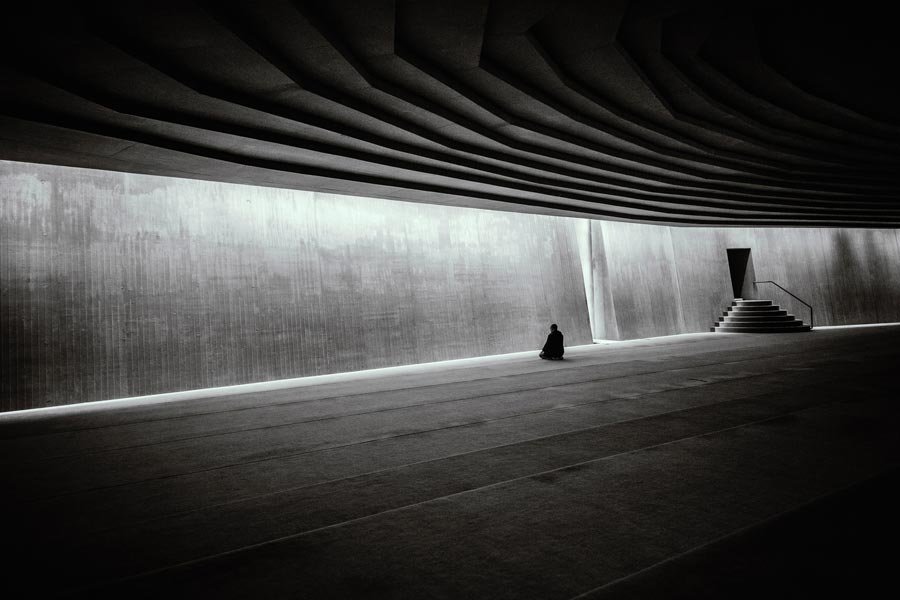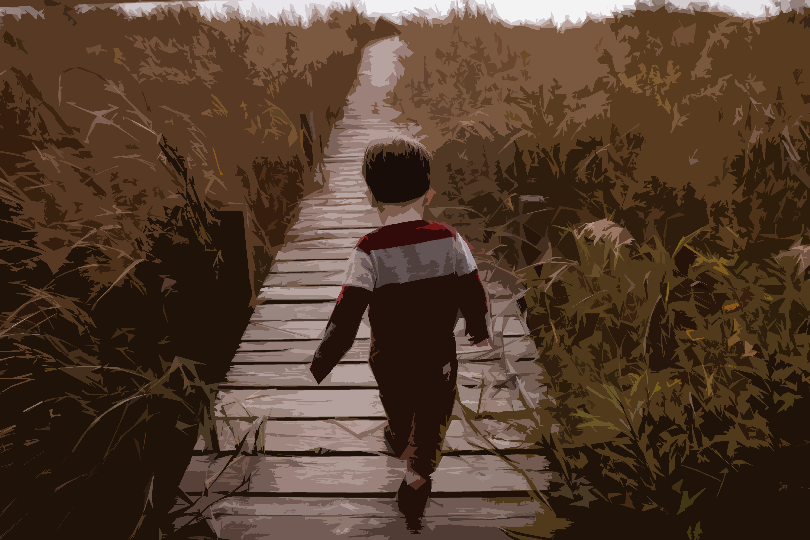There are increasing numbers of non-believers. In the US, about a quarter of the population is not affiliated with any faith. In other Western countries like Sweden, the Netherlands and the UK, non-religious people are the majority.
Secularization is also noticed in places of worship. The average age is rising and the church benches are only filled with fogeys. Churches have difficulty attracting the young to their communities, much to the disappointment of Catholic priests.
This trend of secularization affects our society and the way you live. An absence of religion has profound effects on how people identify themselves, how they teach their kids and how they think about death. Do we need a higher purpose in life? And how can you fill the existential void that atheism leaves behind?
Growing Secularization
For centuries, religions have played a prominent role in human progress and they are one of the cornerstones of our society. Religions are man-made institutions and sets of beliefs intended to explain the major questions of life, existence, and whether there is a supreme being. But at the same time, religion is a powerful instrument of power, which has often been misused by many leaders to extend their reach, wage wars, and keep the population under their thumb.
But in the Western world a change is taking place. Virtually all Western countries now have a strict separation between church and state and thus also the liberty not to adhere to any religion. More and more people are abandoning their faith because they no longer want to identify with their parents’ religion or hold religion responsible for wrongdoing in the world.
Also, science has debunked many of the stories of the Bible, Qur’an and Torah. For instance, through geological research and astronomy, we have a more established timeline of the earth’s creation and how humans came about (surprisingly, it took longer than 6 days). With telescopes and satellites, we can see further and further into our universe. We are increasingly finding scientific explanations for natural phenomena. In addition, access to information through the Internet is leading more people to take a more discerning stance on religion.
To many, it is now obvious: the religious narrative we were always told is not the truth.
But what is the truth?
The Void of Atheism
Around me, I see more and more people becoming directionless. They are clearly distancing themselves from church, but they don’t have a clear idea of what to believe in next. Without a higher purpose and communal endeavor, life can feel frighteningly barren and empty.
The notion that there is no afterlife is, for many, a confronting thought that they would rather not hear out loud. But when you say that there is “something,” or that you think there is more after death, you sound hopeful and that is something people would rather take for truth.
It’s not always easy to find comfort in realism.
Because our societies are designed with religion in mind, it is often assumed that a person needs spirituality or a higher purpose. There is a presumption that religion is necessary for meaning, purpose, or morality and that its absence leaves a void. That void perhaps explains why astrology and spirituality have taken such a flight lately. Better than not believing in anything, right?
If God plays no role in your life and you can live just fine without faith, then this void may not exist for you at all. But for those who come from a religious upbringing and whom are still struggling to make the transition to a life without religion, it may help to mimic certain elements of religion in a non-religious setting.
Positive Aspects of Religion
Even though you may not agree with religious institutions, the books on which religions are based, or the underlying ideologies, you must acknowledge that religion has played an important role in human history. Moreover, in some aspects, religion has a positive impact on individuals and people can draw strength from believing. If you are a non-believer, you do not have that source of encouragement.
How can you replicate the positive effects of religion?
Sense of Belonging
Human beings like to belong to a group. Faith has always been a provider of unity and solidarity.
For those for whom faith plays no role in life, it is not a common practice to form communities on this basis. It is therefore difficult to bring atheists together and unite them. Atheists who do actively promote atheism are notably fewer than firm believers. Many active atheists therefore find their peers on the Internet. But compared to traditional religions, their organization is loose and offers less merits.
Churches, mosques and temples offer fellowship, a sense of belonging and weekly or daily gathering. People tend to go to a religious institution in the same neighborhood or city, thus engaging in bonding with people in the area. Informal chit chat before and after service are not just about religion, of course, but also involves the ins and outs, gossip, and happenings in the neighborhood. After spending an hour and a half listening to people preach that you will burn in hell if you don’t see God as your savior, a bit of small talk over a cup of coffee is not so bad.
As a non-believer, you miss all these moments and will perhaps be more of an outsider. You can, of course, organize your own Sunday gathering by inviting family, friends or neighbors over for a delicious brunch. But you can’t compete with the multiple mosque visits or temple offerings per day.
You could emulate community involvement by joining a different association with a strong ideological character. Think of an environmental movement, political movement, ethics committee or become active in your local township. Or on a more personal level, you could join a yoga class, martial arts course, art movement, theater group, choir, et cetera.
People sometimes say football is religion, too. When you see the hardcore hooligans of rival teams come to a clash, then it is indeed very reminiscent of the local derby of Gaza.
Guidance
The Bible, Qur’an and Torah offer answers to the questions of life. Through imaginative stories with a clear moral, they provide guidance on certain life choices. The stories include dilemmas, sacrifices, life events, relational tensions, hope-inducing myths, and cautionary life lessons.
What would Jesus have done? How did King Salomon solve his dilemma? Why was Muhammad more of a cat person?
Over time, people have started to interpret the stories less literally (thankfully), but the moral lessons remain. It is like a guidebook for life that you can open when you can’t work it out yourself.
Non-believers do not have such a guidebook. Instead we use our own common sense and in the worst case we do a Google search for our problem with the word “reddit” behind it.
Still, it would be nice to have some kind of Bible to give you inspiration when you need it. Of course, you could just open the Bible and read the stories as if they were fictional fantasy stories. But you will also find a lot of the wisdom in non-religious books. Personally, I have found more use in fiction books than non-fiction books that wrote about my exact problem. The strength of religious books lies in the symbolism and room for interpretation, and you won’t find a lot of that in non-fiction books.
I find it hard to prescribe books that are going to help you in life. This will be unique to each person. But my piece of advice would be: go read (more).
Houses of worship
The high ceilings, the atmospheric lighting, the symmetry; there’s something about the atmosphere of churches that even makes me as an agnostic want to step inside.
It gives a sense of peace and tranquility. Moreover, churches, mosques and temples are often the best-maintained buildings in the area and are abundantly decorated. If only we treated every building with the same care.
I can imagine that it is nice to spend some time in a church or temple once in a while. Fortunately, many religious buildings are also accessible to non-believers. However, if you are looking for a quiet haven apart from churches, mosques and temples, you may be able to find it in libraries, sanctuaries, museums or meditation centers.
Rather than places to honor a god, you can designate these buildings as places of self-improvement. Make a commitment to yourself that you are not going to look at your phone while inside and spend all your time strictly on personal development.
Confessions
Many religions have a practice of acknowledging one’s sins or wrongdoings. I think letting go of feelings of guilt is an excellent way to achieve inner peace. But of course, for that you don’t necessarily have to hop into a small, dark booth with a priest. In fact, I would advise against going into any dark room with a priest.
You can also confess to yourself, through a journal where you occasionally write down mistakes and things you regret. You can also confess your wrongdoings to a friend you trust. Expressing your missteps and feelings of guilt allows you to let go and learn from your mistakes. A journal or a listening ear from a friend is also a lot cheaper than buying indulgences to wash away your sins.
Prayer
A moment of silence and reflection. You can actually think of this as a kind of mini mindfulness exercise in which you list what you are grateful for. This often takes place before meals as well. When you think of it this way, there is actually nothing wrong with that.
Instead of bending over on a little rug towards Mecca, or folding your hands and thanking an almighty God, you can make moments like these very personal. Take a conscious moment of silence and express to yourself what you are grateful for. Repeatedly stating positive affirmations can contribute to your mood, self-confidence and perhaps even success.
Charity
Many religious societies devote themselves to serving the public and undertake projects to help the poor. Personally, I am always a bit skeptical about evangelistic projects in poor countries. Of course it’s good to nourish the poor who are in dire need, but to also spoon-feed them with Christianity with the other hand, I think that’s morally inappropriate. Sure, go ahead and help build a school in an African country, but leave out the Bible lessons.
But that does not change the fact that many religious people are active in social projects and contribute to the well-being of others, because they are clearly stimulated by their faith.
Voluntary work not only contributes to society, but it also provides you with a sense of fulfillment. So consider what you can do in your community. Perhaps you can serve coffee at a retirement home, help with planting greenery in your neighborhood, or become a caregiver for someone in need.

Waking Up: A Guide to Spirituality Without Religion
by Sam Harris

Religion for Atheists: A Non-believer’s Guide to the Uses of Religion
by Alain de Botton
Forgotten Childhood Dreams Can Uncover Your Purpose
by FreshSaga
Let’s fly back to your primary school years for a moment. I’m sure that at one point, a teacher or an uncle has asked you the following question: Who do you want to become when you grow up?
Solid chance you were able to answer that question without any hesitation. However, those childhood fantasies seem utterly unrealistic now. They were mere dreams, not taking into account the reality of being an adult and all responsibilities and the financial burden that rests on your shoulders.
But if you feel unhappy as a grown-up, it might be worthwhile to find out what the kid in you wants.






